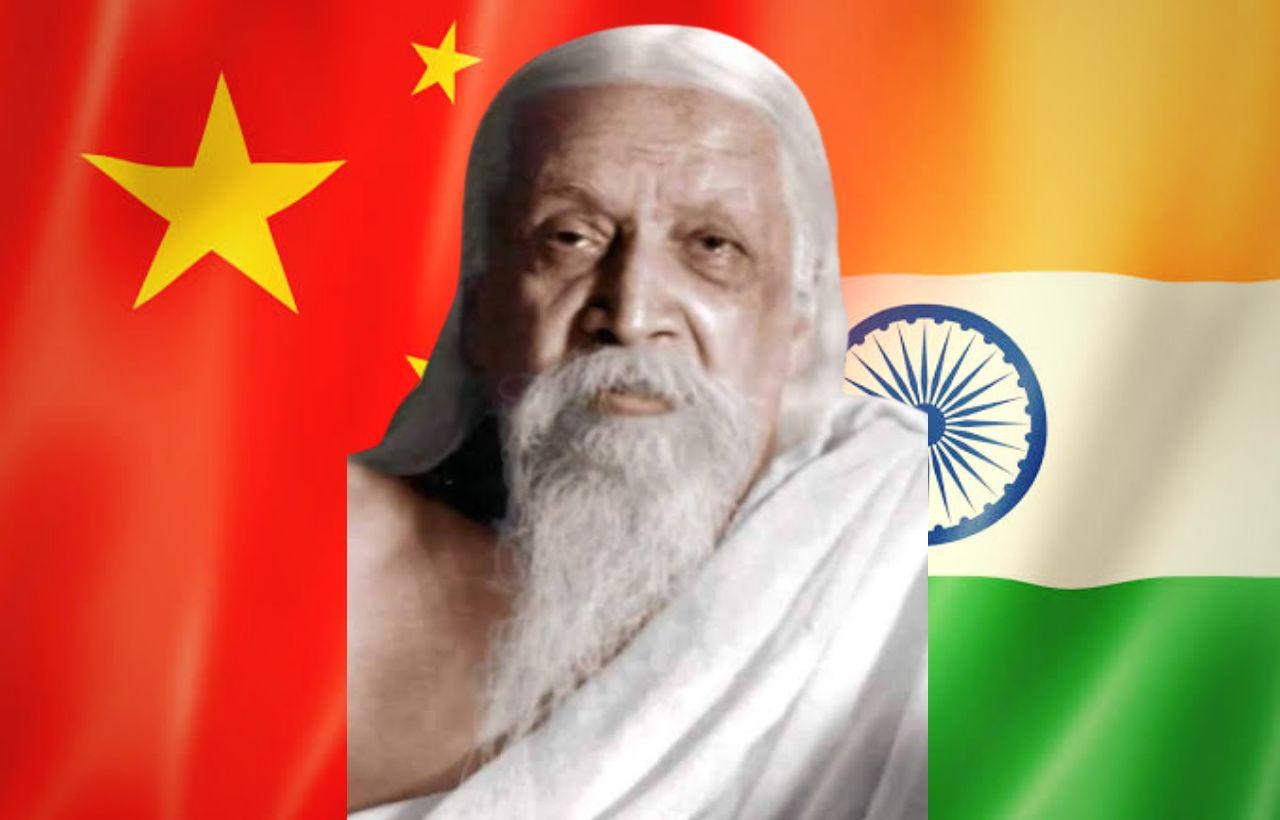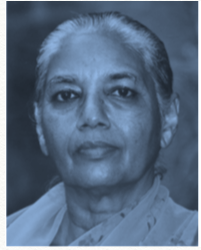China's Disintegration - The Seer Vision of Sri Aurobindo
When Indian political leaders were blindly exulting in their new-found friendship with China, Sri Aurobindo saw with his seer-vision the grave danger Communist China posed for India.

When Indian political leaders were blindly exulting in their new-found friendship with China, Sri Aurobindo saw with his seer-vision the grave danger Communist China posed for India.
He wrote in in 1950 -- 12 years before the Chinese attack on India in 1962, long before anybody in India could gauge the menace China had become for India – in a postscript chapter of his book The Ideal of HumanUnity,
“In Asia a more perilous situation has arisen, standing sharply across the way to any possibility of a continental unity of the peoples of this part of the world, in the emergence of communist China. This creates a gigantic bloc which could easily englobe the whole of Northern Asia in a combination between two enormous Communist powers, Russia and China, and would overshadow with a threat of absorption South Western Asia and Tibet and might be pushed to overrun all up to the whole frontier of India, menacing her security and that of Western Asia with the possibility of an invasion and an overrunning and subjection by penetration or even overwhelming military force to an unwanted ideology, political and social institutions and dominance of this militant mass of Communism whose push might easily prove irresistible.”
In June 1950, K. D. Sethna, the editor of Sri Aurobindo Ashram magazine Mother India wrote a letter to Sri Aurobindo to request for Sri Aurobindo’s guidelines on Korean Crisis. On June 28, 1950, Sri Aurobindo wrote to Sethna,
“The affair as plain as a pikestaff. It is the first move in Communist plan of campaign to dominate and take possession, first of these Northern parts and then of South-East Asia as a preliminary to their manoeuvres with regard to the rest of the continent – in passing Tibet, as a gate into India.
“If they succeed, there is no reason why domination of whole world should not follow by steps …..”
Sri Aurobindo and President Kennedy
Sri Sudhir Ghosh played an important role in Indian politics as an Emissary of Gandhi in pre-and post- Independence days. Later, he became a disciple of Sri Aurobindo. On March 28, 1963, he met President Kennedy of the United States and showed the President as the last testament of Sri Aurobindo written on November 11, 1950 the following passage:
“The basic significance of Mao’s Tibetan adventure is to advance China’s frontiers right down to India and stand poised there to strike at the right moment and with the right strategy, unless India precipitately declares herself on the side of the Communist bloc. But to go over to Mao and Stalin in order to avert their wrath is not in any sense a saving gesture. It is a gesture spelling the utmost ruin to all our ideals and aspirations. The gesture that can save is to take a firm line with China, denounce openly her nefarious intentions, stand without reservation by the U.S.A. and make every possible arrangement consonant with our self-respect to facilitate American intervention in our favour and, what is of all still greater moment, an American prevention of Mao’s evil designs on India. Militarily, China is almost ten times as strong as we are, but India as the spearhead of an American defence of democracy can easily halt Mao’s mechanized millions. And the hour is upon us of constituting ourselves such a spearhead and saving not only our own dear country but also South-East Asia whose bulwark we are. We must burn it into our minds that the primary motive of Mao’s attack on Tibet is to threaten India as soon as possible.”
Sudhir Ghosh Writes,
"Since the President did not know who Sri Aurobindo was I explained him briefly that Sri Aurobindo was born the son of an anglicized Bengali who wanted his son to be trained like an Englishman. He was thus sent, at the age of seven, to school in England under the care of a British missionary friend. The bright boy won a scholarship to a public school, St. Pual’s in London, and found his way to Cambridge, as a Foundation scholar in King’s college, where he did, of all things the classical Tripos -- very unusual for an Indian. He took a First in the Classical Tripos in 1892. When he return from Cambridge to India, at the age of 21, to teach in a college in Baroda …. [he read] the great classic [tongue] Sanskrit, and if one sees merely his written works of scholarship on the Vedas, the Upanishads, the Gita, his poems and literary work, written in superb English, one finds the range of it astonishing. But this was the mere scholarship and intellectual achievement. After a period as the leader of a violent revolutionary movement in Bengal, in the first decade of this century, to overthrow British rule in India he retired to the French enclave, Pondicherry, where he lived continuously from 1910 to 1950. For the last 24 years of life he never came out of the house he lived in. As a result of decades of self-development he acquired a consciousness and a power which was more than mental or intellectual. During his 40 years as a Yogi in Pondicherry, Sri Aurobindo rarely intervened in political matters; the only occasion on which he intervened in such matters was in 1942 when Sir Stafford Cripps brought to India, as Mr. Churchill’s emissary, the very inadequate British proposal of giving India independence after the war as the basis of India’s co-operation in the war, which was rejected by both Gandhiji and Mr. Nehru. Sri Aurobindo [suggested] at that time in a massage to Gandhiji and Mr. Nehru that the unsatisfactory proposal brought by this Englishman should not be rejected.
“The president read the words of Sri Aurobindo’s last testament several times over and said, Surly there is a typing mistake here. The date must have been 1960, not 1950. You mean to say that a man devoted to meditation and contemplation , sitting in one corner of India, said this about the intention of Communist China as early as 1950?” I pointed out to the President that Sri Aurobindo passed away in December 1950. He was somewhat shocked. 'So there you are' said the President. 'One great Indian, Nehru, showed you the path of non-alignment between China and America, and another great Indian, Aurobindo, showed you another way of survival . The choice is up to the people of India.'
“So the President got up to go lunch to entertain his Royal guest, the King of Morocco, and I handed to him a present I had brought for him from India – three books of Sri Aurobindo, The Ideal of Human Unity, The Human Cycle, War and self-determination. 'Come and see me again when next you are in Washington,' – said the President as he opened the door of his study for me.” [ Gandhi’s Emmissary by Sudhir Ghosh. Pub. Rupa and Co.]
[ The passage which Sudhir Ghosh mistakenly attributed to SRI Aurobindo , was in fact was written for Mother India by editor K. D. Sethna on November 11, 1950 but had been read and approved by Sri Aurobindo.]
Footnote
Late Sri Surendra Mohan Ghosh, a freedom fighter and respected political leader of India, later to become a M. P. and the leader of congress party in Rajya Sabha, was a follower of Sri Aurobindo. On 24 November 1926, Sri Aurobindo withdrew into his chamber from where he gave Darshan to his disciples and devotees four times a year. Surendra Mohan was the only person who had the rare privilege of Sri Aurobindo’s Darshan in Sri Aurobindo’s chamber every time he visited the Ashram, once on the day he arrived and then before he left, right up to 1950 when Sri Aurobindo left his body.
In October 1950 on the last day of his visit Surendra Mohan went as usual for Sri Aurobindo’s Darshan, not knowing that it would be the very last. After offering Pranam as he turned to leave, Sri Aurobindo, in his sweet and soft voice, said, “You didn't ask me anything about China ?” Surendra Mohan replied, "Sir, I cannot make up my mind about it." He said, "Keep a very keen, careful eye on China. There are certain forces which might divide China and Russia. Keep a keen eye. There are forces at work, still very subtle, and if they come to the surface, China will be disintegrated one day." I listened. Then he asked me, "Have you read the articles on Tibet, that have come out in Mother India?" "No, Sir." "Read them, they are not written by me but they were written on my instruction and I have corrected them." (Mother India, March 1971, P. 111)
Article by

Shyam Kumari Ji
Sri Aurobindo Ashram (Pondicherry)
Shyam Kumari was born in Muzaffarnagar, U.P., in 1934. There she stud- ied in the Vedic Putri Pathshala and S. D. Degree College up to her B.A. In 1965, she passed her M.A. from Lucknow University. She has read widely in Hindi and English literature, as well as religious and spiritual books. Since her childhood she yearned to find God. In 1969, the Divine Mother accepted her in Sri Aurobindo Ashram and appointed her a teacher in the Sri Aurobindo International Centre of Education. Hundreds of her poems, lyrics, stories, plays, literary and social essays, both in English and Hindi, have appeared in national and international journals. She has also written and published more than 70 books, some running into several reprints.

